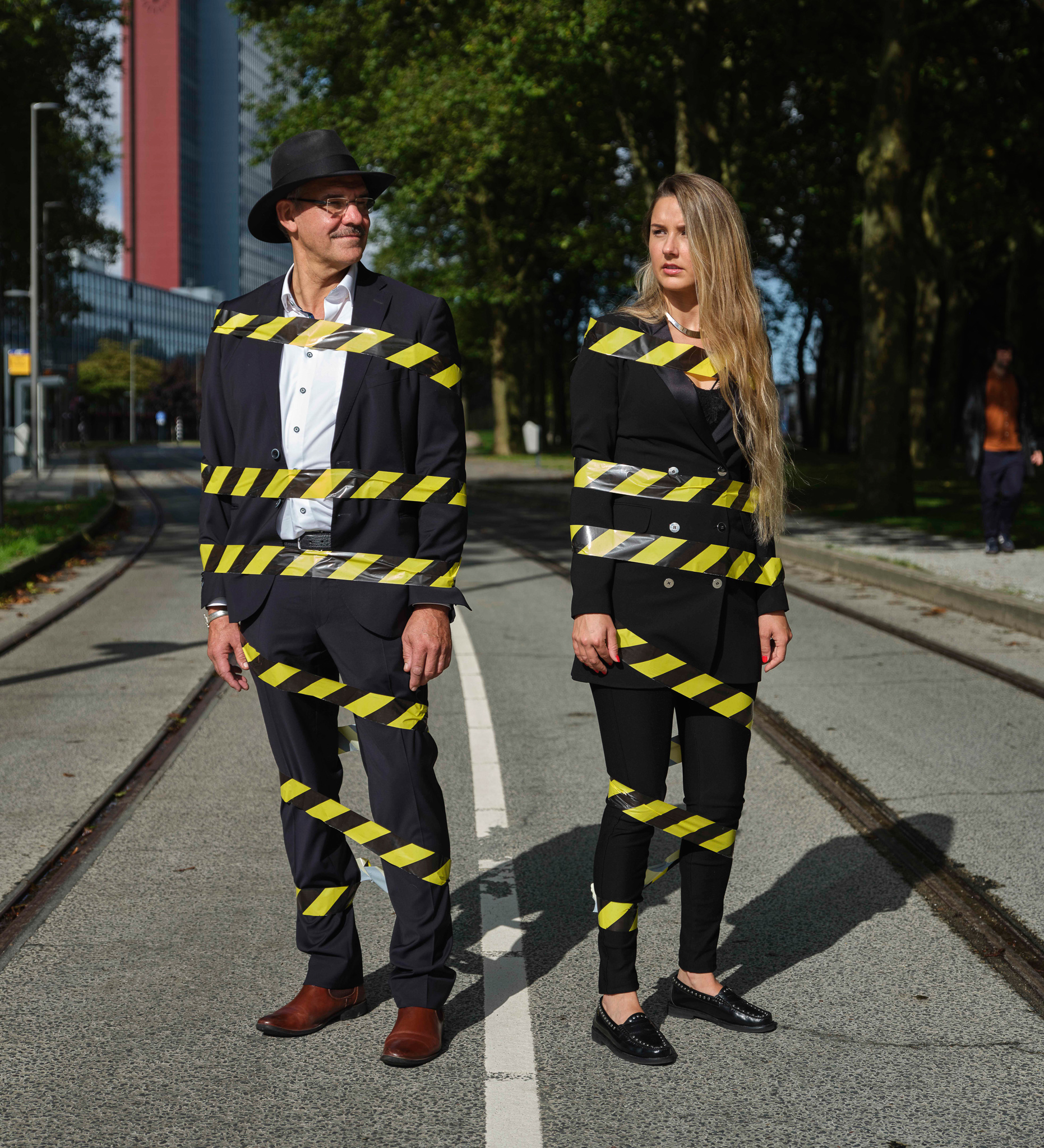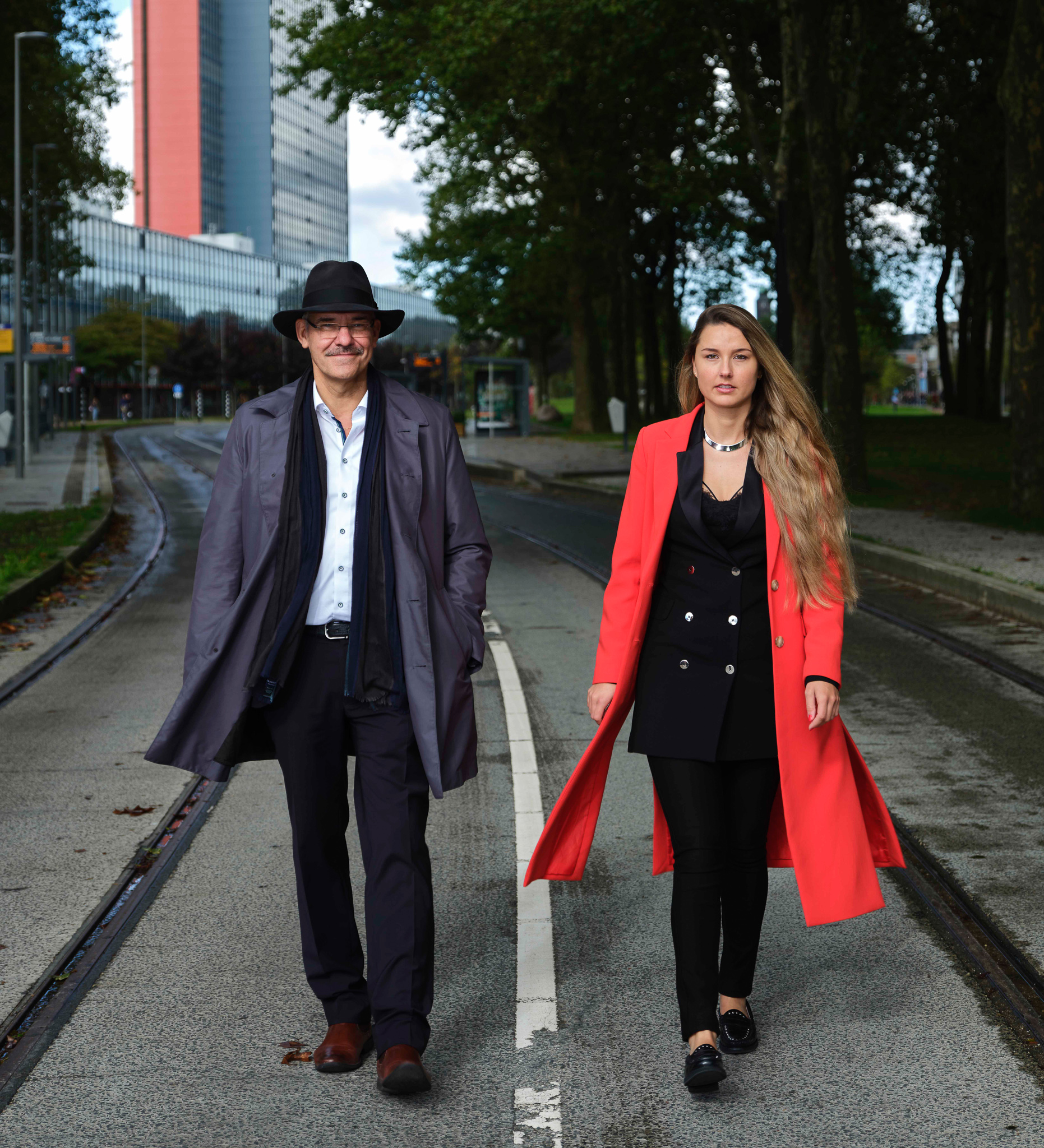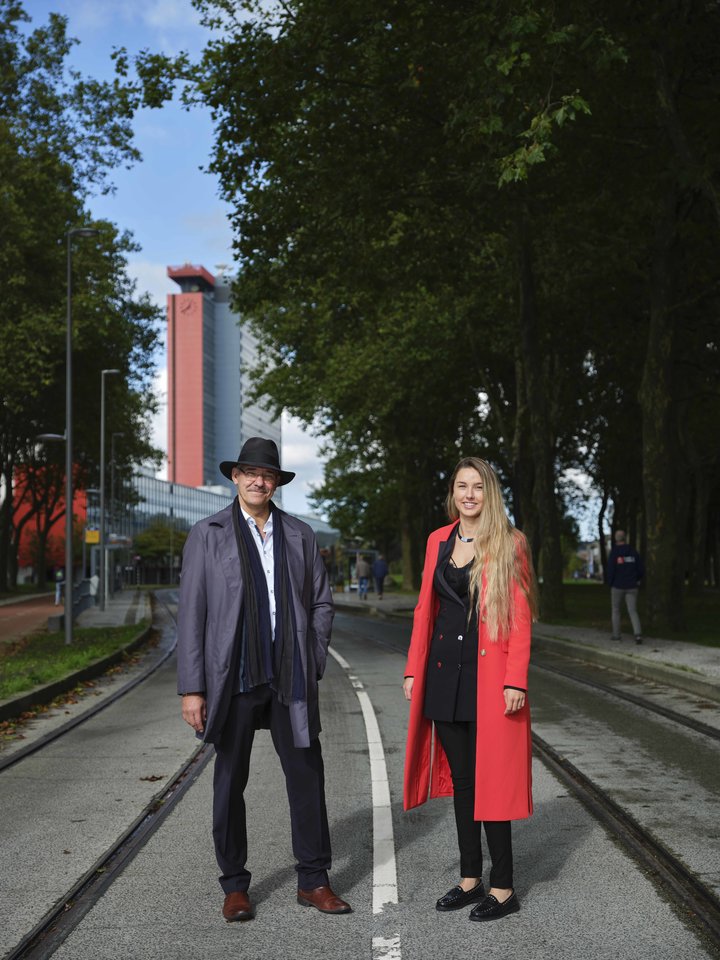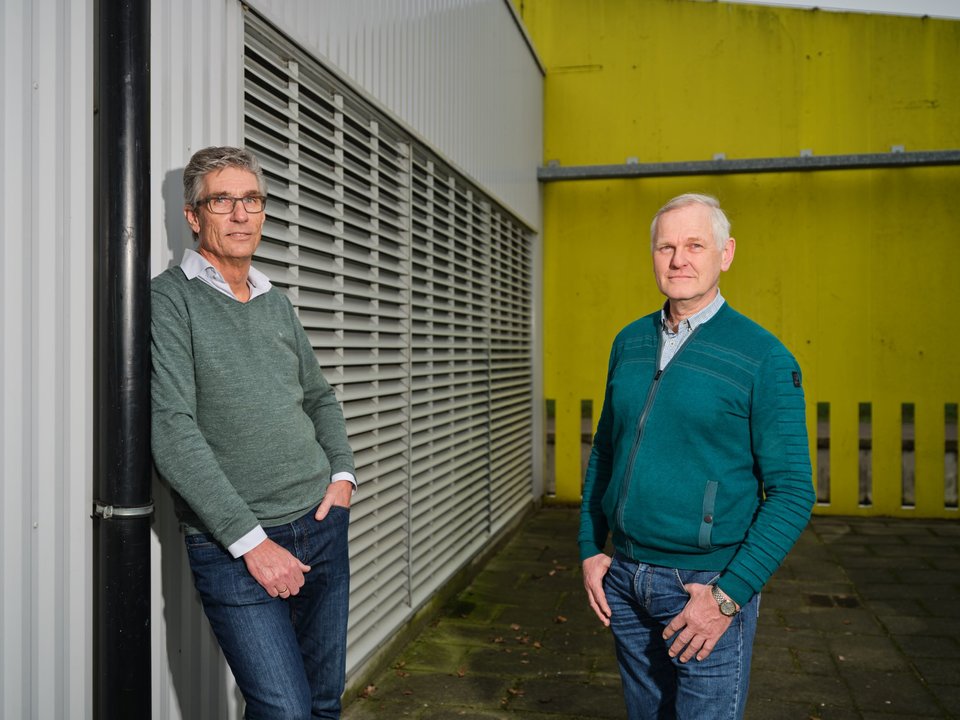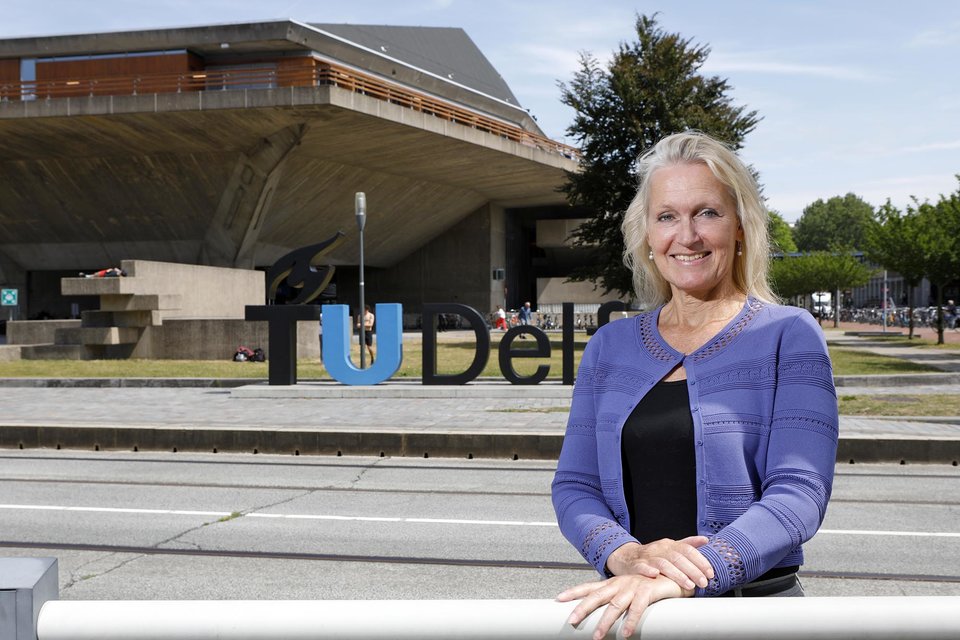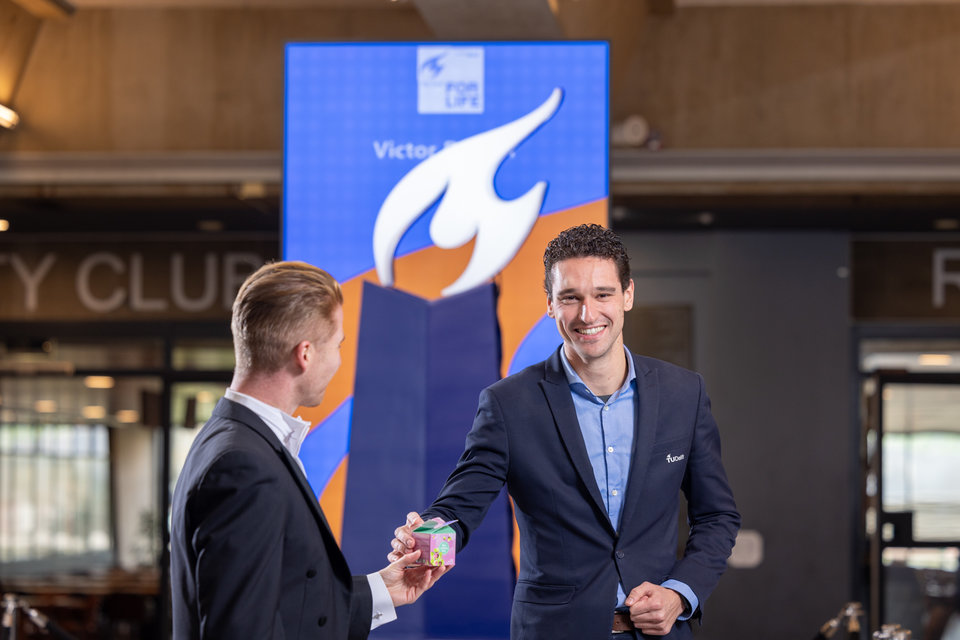Safety and security: it is not a very sexy subject, corporate manager Safety and Security Ron Massink admits. Consequently, he encounters the occasional glassy-eyed look when it comes to things like security risk profiles. “But if you talk about how students were threatened by machete-wielding robbers at a compound abroad, everyone is at the edge of their seats, even though such operational incidents have little to do with safety and security on a strategic level.”
The latter is precisely what the Safety and Security department (Integrale Veiligheid in Dutch, or IV) is all about. Several departments deal with our safety and security: campus security, cybersecurity, building security and Health, Safety & Environment. “IV looks after the interconnection and continuity of all those activities,” says Kelly Duivenvoorden, project manager and deputy manager Safety and Security. “We do that by looking at it from the point of view of the various safety and security disciplines, as well as from prevention to aftercare and from the work floor to governance.” In addition to Massink and Duivenvoorden, the team consists of project managers Patrick Sittrop and Rik van Veen.
Massink clarifies this with an example: “A safety expert would say that the door of your building should remain open, because you have to be able to get out in case something happens. A security guard, on the other hand, would say that the door should be closed, otherwise something might get stolen. So should that door be open or closed? If you look at it from the point of view of Safety and Security, it turns out that such a decision depends on the situation. If there is a symposium with 6.000 visitors today, the door remains open. If there is a transport of valuables tomorrow, the door must stay closed. You can’t take that decision until you have all of those factors in focus.”
With that kind of helicopter view comes overarching authority. “In TU Delft’s mandate regulations, it is stipulated that the directors of HR, CRE&FM and ICT may take measures regarding safety and security, provided that it is done in consultation with us,” says Massink. But having a mandate doesn’t mean it will be automatically recognised. That’s why IV works hard to establish good relationships, within TU Delft, but also outside the organization. They are in close contact with the safety region and the emergency services, with managers of other universities, as well as with the other nuclear reactors in the Netherlands, on account of the Reactor Institute Delft. “Collaboration is at the very heart of what we do,” Massink says.
As part of that collaboration, IV is e.g. involved in new construction projects on campus. “We advise on building projects seen within their social context. What may be a beautiful building during the day can become a scary place at night that people will avoid coming to. If you make sure a building is attractive 24 hours a day, we can use our campus more efficiently. That gives us a better starting point compared to other universities,” Massink explains. “So by being smart about risk management, we can also seize opportunities.” It’s an example of how Safety and Security can contribute to TU Delft’s strategic goals.
Safety Risk Profile
Despite the glazed looks, drawing up the safety risk profile is an important job for IV each year, since the policy for the coming year is determined on the basis of this profile. “In addition to collecting relevant figures such as ICT data and data from the incident room, we also conduct a survey among staff and students, in which they can score the probability and impact of various risks,” explains Duivenvoorden. Here you can observe the influence of current events. “In terms of statistics, we knew that a pandemic would occur once every few years, but people had not previously experienced this as a risk, while it now scores very highly.” Massink: “A few years ago you would hear a lot about radicalization, but this seems to be off the agenda again. As an organisation you should avoid slipping into a risk-regulation reflex every time something happens and take expensive measures that may no longer be necessary in a year’s time. After all, we can only spend our money once.”
Crisis Management
You can’t prepare for every crisis, at least not in detail, is their message. “Crisis management is our best advisor. We have established procedures for it, although working within a crisis team is also a matter of practice,” says Massink. IV therefore organizes crisis training sessions for all faculties and directorates, during which a response cell simulates an incident and the crisis team involved must react. This can involve a fire or accident, but also invoice fraud or a media scandal that threatens TU Delft’s reputation. All that practice has paid off: “Your level of preparedness as an organisation has to be high in order to be able to take the right decisions at short notice. And that’s how it was when the corona crisis hit; in fact, we were one of the first organizations to take action.”
Last year, IV supervised the central crisis team; they later joined the task forces that advised on the phasing out of the measures. Meanwhile, the crisis team has been scaled down again. “If the information density and urgency drop below a certain level, then the responsibility returns to the regular departments,” Massink says. “Simply put: everything that other people are trained to do within the organization falls outside of the crisis management structure. Take digital security for example: we have an excellent department for that. So we only get involved if something happens that has legal consequences, for example.”
24/7 preparedness
On top of all the above, IV is also on standby for any operational incidents. Massink and Duivenvoorden are even on call 24/7, simply because they think it’s important. After all, something is always happening, and often it is on weekends. “Say there’s a big symposium going on and someone turns out to have meningitis, you end up having to make all kinds of arrangements on Saturday morning to ensure that the risk is contained,” says Massink. Their preparedness works: “If something happens somewhere in the world, a natural disaster or a serious accident for example, we usually know within the half hour whether TU Delft students or employees are in that location, so we can check on their safety. For this, we link up with HR, ESA and the faculties,” explains Duivenvoorden.
Here, too, training is an important tool. “We organise a travel safety training course for students to try and give them a basic awareness of the kind of risks they face while abroad. We inform them about country-specific risks and give them tips and tricks on how to best deal with them,” says Duivenvoorden. “In the US, for example, the minimum legal drinking age is 21. In other countries, traffic regulations can be very different, as can be the standards for moral conduct. So we give a number of important points of attention for various countries. And we tell them about actual incidents involving students that have occurred – though we change the names of those involved.”
Circle of 25
Though IV is always on standby, safety is primarily a matter for all of us. “Everyone should feel responsible within the well-known ‘circle of 25’, an area of about 25 meters around you. If someone falls down in there, you help them up; if someone is mugged, you call the police; and if you see someone upset, you ask what’s wrong and whether you can do something about it,” says Massink. He himself takes this even further. “Recently, I stood talking in the Mekelpark, when I saw two electric mopeds approaching at high speed on the bus lane. I stepped into the road with my hand up, but with breakneck speed they managed to pass me. They clearly didn’t feel part of our campus community and that’s a shame.”
Massink and Duivenvoorden feel they are role models. “I regularly call people to account, it could be somebody working on a scissor lift without a safety harness, or a strange character walking around,” says Massink. They also call on us to do our part. “Show everyone what you are doing in terms of safety. Then ask your colleagues ‘shouldn’t we all be doing that?’ Take some action and use that to activate others as well.” Duivenvoorden: “As TU Delft community we are jointly responsible for our safety, so we do need you!”

